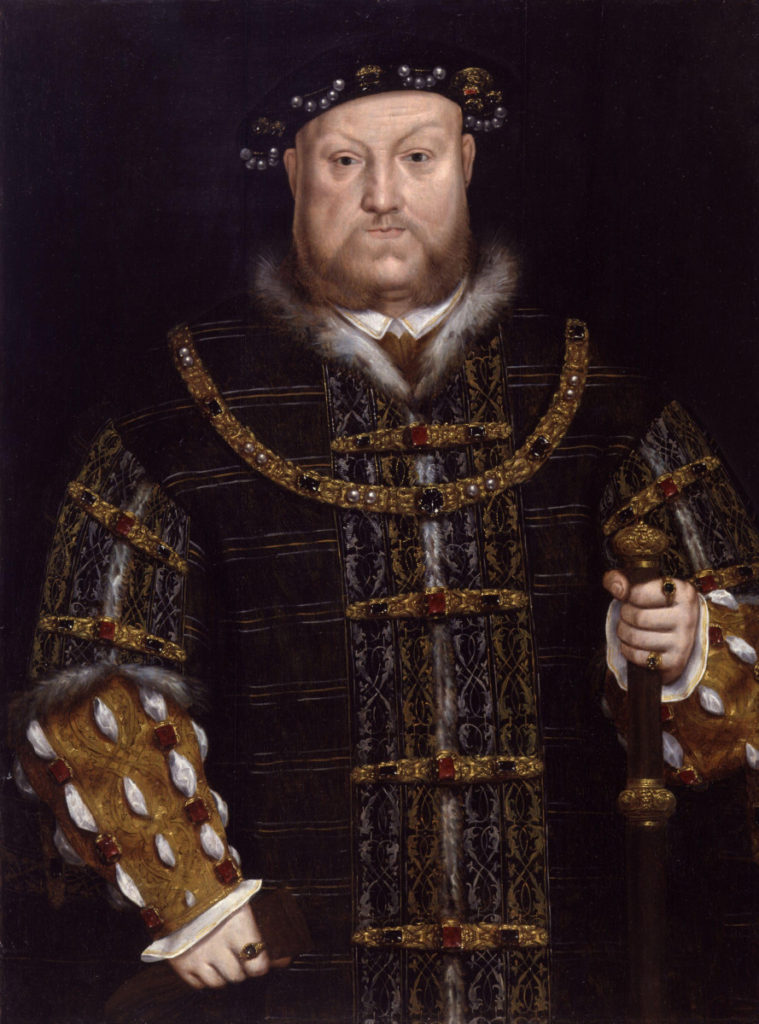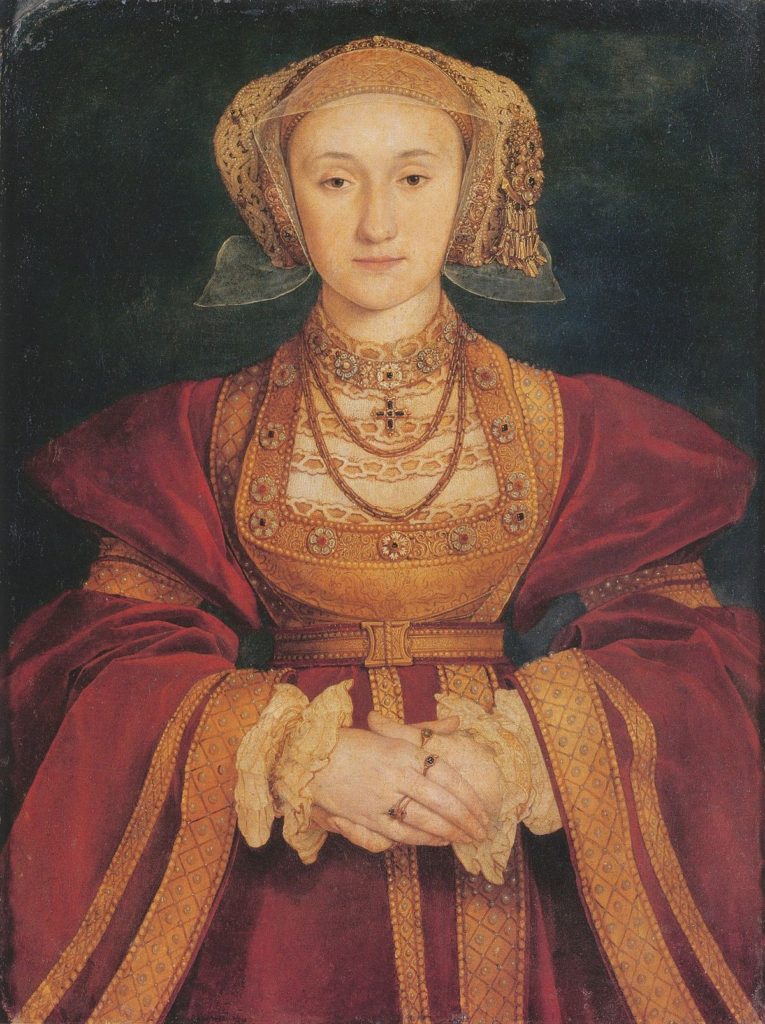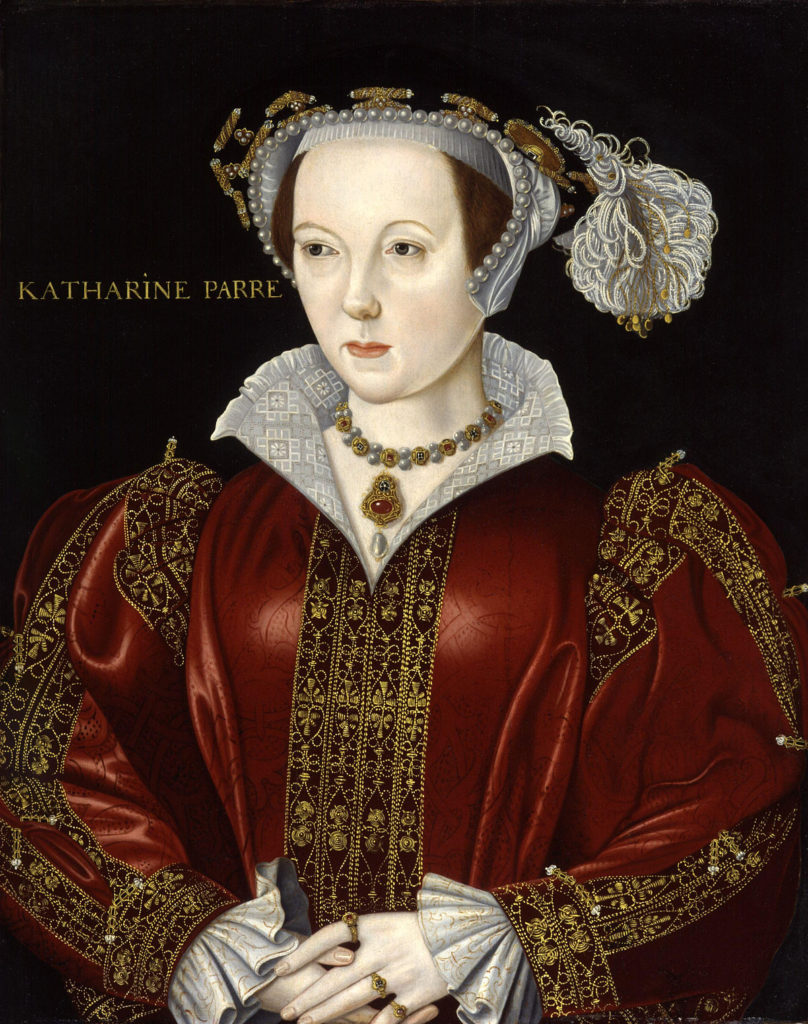“Henry VIII suffered from impotency. It was s a result of obesity and other health problems in his later years.”
It’s a statement you often hear on social media. Generally it’s delivered with the confidence of a cast-iron fact.
But what evidence do we actually have to support it?

Henry’s last two wives, Kateryn Howard and Katherine Parr, almost certainly didn’t ‘enjoy’ the delights of the potent Prince that had married their namesake, Katherine of Aragon. But can we really make sweeping claims about Henry’s health without stronger source material? Many claim confidently that Henry would have suffered from type 2 diabetes and high blood pressure. While both are possible, we simply can’t diagnose at a distance of 500 years.
In truth, we probably don’t have enough information judge whether Henry suffered from impotency in his later years. But there are some valid pieces of source material and circumstantial evidence that it’s worth exploring.
Anne Boleyn: cruel gossip or unsatisfied wife?
The first piece of evidence comes from 1536 and the trial of George Boleyn, brother of Henry’s ill-fated second wife. According to Chapuys, the Imperial ambassador, during the trial, George was handed a piece of paper that contained allegations against him. Despite being instructed to digest it silently, George read the charges out loud. Among them was the accusation that he and his sister, Anne, had been heard gossiping about Henry. They had, it was claimed, been laughing about the fact that the King was struggling to perform in the bedroom.
We must be careful about this evidence. To start with Chapuys was not an eyewitness to the trial. Despite the fact that he was reporting back to his master, the emperor, he had form for reporting gossip as fact. He also may have thought the Emperor would enjoy this little dig at Henry’s potency.
Nevertheless, the ambassador would have conversed with several eyewitnesses. He was quite complimentary about George Boleyn’s defence at the trial, despite regarding all Boleyns as the enemy. In this instance, Chapuy’s words are generally seen as reliable.
Of course, the fact that George and Anne were accused of such gossip does not mean they were guilty of it. Much of the evidence levied against Anne and her ‘conspirators’ was clearly falsified. Yet, while this is not exactly robust historical analysis, what we know of George and Anne’s characters gives the story a ring of authenticity.
Whatever the truth of this tale, we simply cannot conclude that Henry was impotent from 1536 onwards. He successfully impregnated Jane Seymour. While it did take Jane six months to fall pregnant with Edward VI, it is possible that she had miscarried a child previously and was even pregnant when she and Henry married. They certainly married in haste.
The Cleves catastrophe

For the next piece of evidence, we must turn the clock forward to 1540 and Henry’s disastrous marriage to Anne of Cleves. This marriage was unconsummated, and Henry confessed to his physician that he had been unable to do the deed. But he was very keen to stress that he was not in error. He had experienced two ‘nocturnal pollutions’ (i.e. wet dreams) that very night.
Here, for the first time, Henry is admitting a ‘performance’ issue. But he is also squarely making it clear that it is not his fault and that all his equipment is working as it should. Was he so alarmed by the situation he had to seek a doctor? Or was he worried word of his inadequacy would spread and sought to make a pre-emptive strike?

The Duke of York that never appeared
In Henry’s mind, the future of the Tudor dynasty hung by the fragile thread of one little boy. He was bound to want to sire sons from his final two marriages. People expected him to do so. Yet, sons did not spring from either union.
The issue was unlikely to be with either wife. Katheryn Howard was young and healthy. Katherine Parr would conceive almost straight away once married to the virile Thomas Seymour. Something seemed to be amiss with Henry.
One explanation could be that Henry was now struggling with impotency. But it could just as easily have been declining fertility. Henry had claimed responsibility for 11 pregnancies and was almost certainly responsible for more. But even with men, fertility declines with age. His interest in Katheryn Howard suggests there was at least something sexual about their relationship.
Nevertheless, issues of sexual performance remain a possibility. And for an explanation, we might be wise to search into the soul.
Impotency can be caused by psychological as well as physiological factors. It is certainly possible to make sense of Henry’s potential problems through this lens – particularly if the problems do originate in the 1530s.
Henry had moved heaven and earth to make Anne Boleyn his own. He had gone through a traumatic separation with his first wife and become estranged from the daughter he had once loved so much. He had remade the religious and political makeup of his Kingdom by breaking with Rome. Yet, almost as soon as he married Anne she proved to be a disappointment. Could any issues with intimacy, sex and performance have resulted from such disappointment? If so, it might help explain why he came to believe there was something sinister about Anne. That she had once bewitched him. Throughout the twists and turns of the 1540s, it is most conceivable that such problems would have worsened.
We shall never know the truth. That Henry experienced issues with sexual performance is possible. That these may have been linked to type 2 diabetes, blood pressure and emotional issues all make sense. But we can’t diagnose at this distance. It is of course interesting to speculate. Let’s just ensure we maintain a degree of humility and caution when we do so.
Subscribe to our newsletter!